Islam, dess inflytande på ”väst” och dess inverkan på världen, politiken och kulturen har återigen aktualiserats i och med jihadistgruppen Islamiska Statens (IS) framgångar i Syrien och Irak. I Ny Tids temanummer om rasism (39/2014) inledde forskaren Karin Creutz en debatt om islamofobi, som fortsätter med en insändare av Markus Sandberg, och ett svar av Creutz.
I USA har en annan diskussion initierats av komikern, programledaren och samhällsdebattören Bill Maher. Maher har länge varit en gullegris för amerikanska liberaler på vänsterkanten. Han har profilerat sig som en galjonsfigur för ateismen, och religionskritik har en central plats i hans satir. Efter nyheterna om IS brutala krigföring har han vänt udden i sin kritik mot islam – inte bara fundamentalistisk islam, utan islam som religion. Enligt Maher är det befängt att – som till exempel den finländska bloggaren Amir Zuhairi – påstå att IS inte representerar islam. Maher kallar islam för en våldsam religion, och citerar statistik som visar att en ansenlig del av muslimer till exempel i Egypten anser att dödsstraff bör utdömas åt folk som lämnar trossamfundet. Debatten drogs till sin spets förra veckan under ett avsnitt av Mahers program Real Time, där den liberala skådespelaren Ben Affleck tog sig an Maher och filosofen Sam Harris och kallade deras syn på islam ”vidrig och rasistisk”. Enligt Affleck, och flera andra liberaler som vanligen håller med Maher, gör man fel i att fördöma en hel religiös grupp utgående från dess extremelement.
Maher är inte ensam – andra ateister som Ayyan Hirsi Ali, Richard Dawkins och den hädangångne bråkstaken Christopher Hitchens har alla gått ut med grova angrepp mot islam som religion och samhälleligt och moraliskt system.
Faktum är att båda sidor i debatten har rätt, beroende på vilken infallsvinkel man väljer. Ur Bill Mahers eller Richard Dawkins ateistiska synvinkel är frågan enkel: som de ser det, är det fråga om förvirrad vidskepelse vars heliga texter används som förevändning för ohyggliga grymheter. Man ska gärna minnas att deras kritik mot kristendomen varit precis lika giftig, utan att det liberala etablissemanget rest ragg. På grund av den utbredda islamofobin i den kristna världen, klingar ändå de stereotypa generaliseringarna om muslimer falskt i mångas öron.
De här religionskritikerna attackerar också symptom snarare än orsaker. Att det i många muslimskt dominerade länder i dag pågår brutala grymheter har mindre att göra med religion än med det geopolitiska och socioekonomiska läget. Däremot bör man ge Maher och hans meningsfränder rätt i att det inte ska hymlas med att religionen i många muslimskt dominerade länder används som ett maktmedel och en härskarteknik. Inte heller ska det stickas under stol med att många muslimska ledare använder sig av religiös retorik för att sprida hat och bitterhet.
Men detta drag är ur ett historiskt perspektiv inte specifikt för islam. De polyteistiska romarna förföljde judar och kristna, kristna slaktade muslimer under korstågen, och spred med våld och lockelser sin tro till varje hörn där de lade sina fötter under kolonialismen. Kolonialismen i sig är ett utmärkt exempel på religion som maktmedel – och till stora delar medskyldig till det kaos som i dag utspelar sig i Mellanöstern, Västasien och Nordafrika. Den gigantiska pedofiliskandalen som skakat Vatikanen, och avslöjanden från kristna samfund världen över visar att kristendomen ingalunda är fri från övergrepp och våld.
Ingen kan förneka att det finns gigantiska problem inom islam som dess utövare bör ta itu med på de politiska, sociala och kulturella planen. Dessa problem är ändå mer förknippade med religion som fenomen än med islam som specifik religion. I grund och botten handlar det också om vatten, mark och mat, snarare än om vem som ber till vilken gud på rätt sätt. Och att stämpla alla anhängare av världens näst största trossamfund som terrorister och våldsverkare hjälper åtminstone inte till att lösa problemen.
Janne Wass



3 kommentarer
Hej,
Intressant artikel. Jag håller helt med om att man bör undvika att tala om ETT islam. IS representerar knappast alla muslimer. Dock tycker jag ditt påstående att ”Dessa problem är ändå mer förknippade med religion som fenomen…” är precis lika fel. Vad religion är och hur det bör definieras är ingen lätt sak, det kämpar religionsvetare med varje dag, men våld är, skulle jag bestämt vilja hävda, knappast ett ”religiöst fenomen” utan snarare ett allmänmänskligt sådant. På denna punkt framstår Dawkins, Maher, Hitchens och gänget som precis lika fundamentalistiska och essensialistiska som dem de vill bekämpa.
Jag avsåg inte heller att kalla ”våld” för ett religiöst problem, utan snarare sättet på vilket religionen utnyttjas och missförstås för att man ska kunna övertyga andra/sig själv för att ta till våld, diskriminera, utnyttja, undertrycka. Det är klart att detta i längden är ett mänskligt problem, men ett som ofta ”amplifieras” av religion.
/Janne Wass
The discussion between Karin Creutz and Markus Sandberg has already produced so much text that I do not really dare to add to that, for fear that any further contributions will simply drown in the overall length of the discussion. Thus, I try a comment in this place instead.
What I am, up to now, missing a little bit in this discussion is psychology: which are the mechanisms which produce, during a person’s individual development, what is perceived by others as this person’s ”religious behaviour”? What we observe is, after all, that there are quite clear differences between ”Islam” and ”Islam”. The biggest Islamic nation on Earth is Indonesia, but what we are troubled about is not any possible problems with Indonesians. Nor has there been ANY trouble with the Tatars in Finland. Whereas Muslims from the Middle East and North Africa are pretty regularly providing material for the headlines which sell so well (and produce many readers’ ideas of Islam in the process).
Thus, from where religious behaviour? One factor is of course the current sacred texts. But if one reads the Koran (which is really not that much to read) one will not find much which could serve as a basis for the picture which IS/ISIS likes to spread about itself. But of course the Koran is derived from the Old Testament, and if one reads that (as I had recently to do for some reason), one can from there easily find justifications for however bloody doings – I tend meanwhile to characterize Moses as ”Genghis Khan on foot” (by the amount of spilled blood) and (in psychiatric terms) as a ”dangerous, egocentric, sexual neurotic who enjoyed delusions of grandeur” (reminding of Ayatollah Chomeini) – in short, a person who should best be locked away in a closed psychiatric institution. – Christianity has, as we know, not managed to simply drop the Old Testament, so that the Christian Right in the USA can (and does) still use it for finding reasons to crack down on minorities. Which is of course NOT reported so very much in our media (it would be against really all the rules of Finladisering – which has meanwhile changed its direction from Moscow to Washington, but is still the same old subservience).
But apart from sacred texts, what is there? There are, e.g., traditions concerning food: in the Middle Eastern tradition meat is an essential part of the diet, and from any man it is expected that he be able to take a living lamb and cut its throat. And I suspect that this was similar among the small farmers in former Yugoslavia. And what can we expect how such a person, who has been encouraged and trained in the cutting of throats, will deal with an enemy whom he gets hold of? What effect will it have on the development of a man if he has, since early childhood, been celebrated for at least not being a girl? I have heard of a widespread tradition to give the name Mohammed to first-born sons (which one could interpret as an expression of totally unrealistic expectations – which sometimes may well be experienced as such). What about the fact that in Saudi-Arabia the picking up of garbage is consistently left to foreign labourers? How far are the traditions of slavery still alive? How much respect is given to preachers (and how much to, say, science)?
It is the things which are encouraged (or the opposite) by the social environment which produce what we call a culture (but could as well call a neurosis). The sacred texts then provide some advice and justification how the culture is acted out. The Old Testament provides especially much justification for the spilling of blood (very much in contrast to, say, Buddhism), Islam already much less – but there the demand that meat should be halal gives some training in the wrong direction.
In our society, though, the reading of sacred texts has largely been given up. Instead, the media have discovered that flattery sells so really well, which in turn produces a culture which is at least very much convinced of its own excellence (and of course of its obvious superiority over anything which is visibly different from it).
Finally: if there should be needed an idea how to deal with ”the Islamic problem”, I think it would be a good beginning to give people the Koran in a language which they fully understand. There is the practical problem that only the text which is in medieval Arabic is considered sacred, so that it would be easy for any preacher to declare an unwelcome translation as blasphemous/forbidden/to be destroyed. As a precaution against this, any edition of the Koran should have the sacred text and the translation side-by-side. This way the same sheet which has on its one side the translation would have on its backside sacred text – which should make it for any devout Muslim impossible to destroy the sheet …